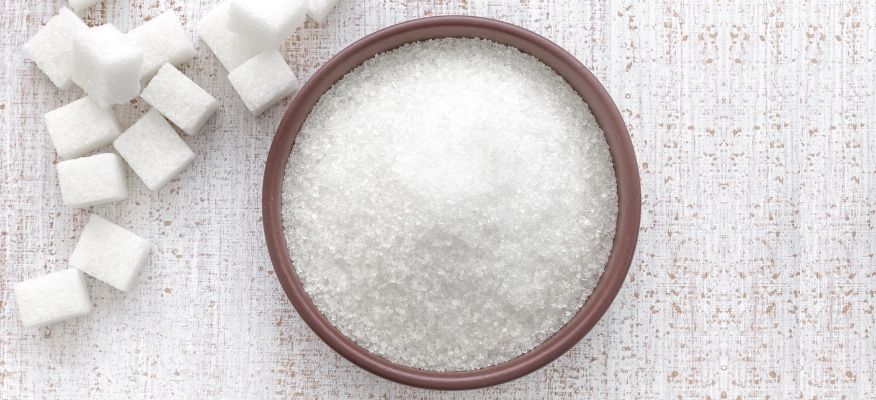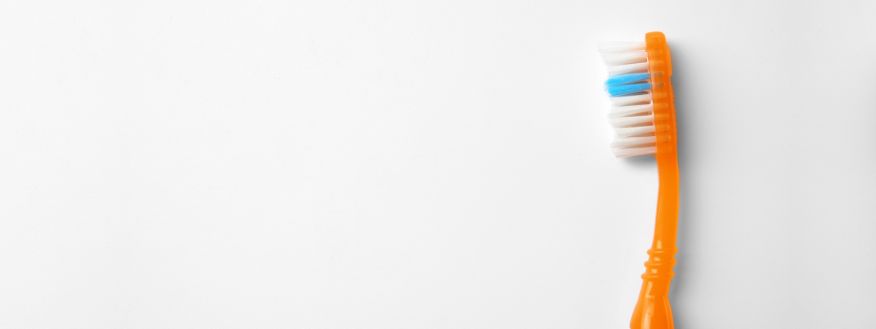
Sugars are found in the most diverse foods and their excessive consumption is one of the main enemies of teeth and oral health.
To prevent the development of diseases such as tooth decay, you should follow a balanced diet, limiting your intake of sugar-containing foods and their frequency throughout the day. Effective oral hygiene and regular visits to the dentist are also essential.
Dental Cavity
Dental cavities are a very common disease that affects almost 90 per cent of the population and can occur in any individual and at any stage of their life.
The presence of bacteria in the mouth, combined with an inadequate diet and poor oral hygiene, is a decisive factor in the development of tooth decay.
Foods rich in sugar serve as food for the bacteria that break them down, forming acids that destroy tooth tissues, thus giving rise to caries lesions. This effect is most evident when food is eaten too often outside of meals or at night before going to bed.
To prevent the appearance of cavities, you should brush your teeth at least twice a day with a fluoride-rich paste after meals. Brushing at night is the most important because during the night salivary secretion decreases and therefore so do defences against food debris and bacteria. You should also floss, maintain a balanced diet and avoid snacking between meals.

Periodontal Disease
Periodontal disease is a chronic inflammatory disease caused by bacteria that affects the supporting tissues of the teeth and can lead to their loss. It can affect and harm the whole body (for example, by favouring cardiovascular accidents or by decompensating blood sugar levels in diabetics).
Initially, the bacteria only cause inflammation of the gums (red and swollen gums) and consequently gingivitis, a reversible condition. If this initial situation is not resolved, the bacteria can also reach the bone and then cause periodontitis.
Gum inflammation is caused by the presence of food debris and bacteria on the tooth surface that are not removed by regular brushing, leading to the formation of tartar. If left untreated, this leads to a loss of support for the tooth, with consequent mobility and, in more severe cases, tooth loss.
It is known that a diet rich in sugar and with several intakes throughout the day serves as a substrate for the proliferation of the bacteria that cause periodontal disease. We therefore recommend a balanced diet and regular visits to the dentist to remove plaque and tartar.
Tooth Demineralisation
Tooth demineralisation is the gradual loss of minerals from the enamel and occurs when bacteria in the oral cavity feed on sugars and produce acids that dissolve these minerals. Enamel can become thin when demineralised, which allows bacteria to penetrate deeper into the tooth, forming caries.
The presence of saliva in our mouths is extremely important in reducing the acidity of the mouth caused by the release of acids by bacteria. It also acts to protect tooth enamel by keeping the pH of the mouth neutral and promoting its remineralisation.
So it’s easy to see that it’s more harmful to eat small amounts of sugary foods several times a day than to eat lots of sweets in one go.

Halitosis
Halitosis is the medical term used to describe the presence of unpleasant breath. There are many factors that cause halitosis, but around 75 to 80 per cent of it is oral.
One of the most common causes is food, particularly food rich in sugar. The accumulation of food residue on tooth surfaces, known as plaque, is used as food for the bacteria in the oral cavity, which generate fermentation by-products with an unpleasant odour.
The accumulation of bacterial plaque can also facilitate the development of caries lesions and gum disease, which is why proper oral hygiene is fundamental to preventing halitosis. Habits such as brushing your teeth twice a day with fluoride paste, flossing, brushing your tongue and drinking 2 litres of water a day help to combat bad breath.
Tooth Loss
The loss of one or more permanent teeth, for whatever reason, has a major impact on a person’s physical and emotional health.
The main reasons for this are: the presence of caries, where bacteria destroy the structure of the tooth; periodontal disease, where bacteria destroy the tissues that support the teeth (gums and bone); and dental trauma, where a fall or impact can cause tooth fractures that lead to tooth loss.
The bacteria that cause caries lesions and periodontal disease proliferate and multiply in the presence of an unbalanced diet, with high sugar consumption, so you should opt for a diet rich in fibre, vitamins and minerals, avoiding sweets especially between meals and at night.
Dental implants are the best solution for replacing one or more teeth, restoring their masticatory and aesthetic function in a predictable and lasting way.

Dr. Carlos Almeida
Dentist (Registered with the Ordem do Médicos Dentistas under Nº 5873)
| Exclusive practice in Implantology and Oral Rehabilitation
| Co-Founder of Instituto Dentário do Alto dos Moinhos
